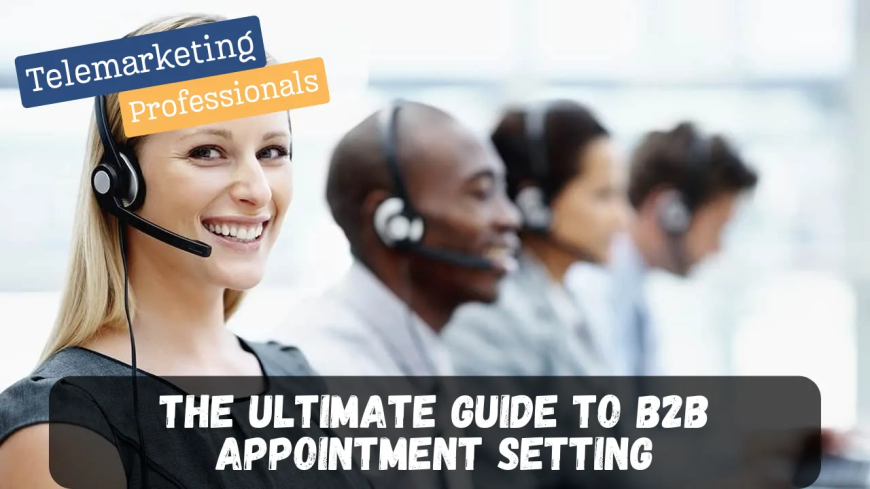The Ultimate Guide to B2B Appointment Setting
B2B appointment setting involves scheduling meetings between a business client or prospect and a sales representative. This is a vital step in the sales process, and it requires research and persistence to succeed.
Using personalized messaging, leveraging relationships for referrals, and identifying common objections are just some of the key strategies that can help businesses improve their B2B appointment setting results.
Key Skills
B2B appointment setting is a key component of many sales strategies. It allows reps to connect with potential clients directly and schedule a face-to-face meeting or product demonstration. This can help them to qualify leads, increase pipeline velocity, and ultimately close more deals.
Exceptional communication and persuasion skills are crucial for B2B appointment setters. They must be able to understand and adapt their approach for each prospect, ensuring they meet each client’s needs. They must also have the ability to identify common objections and develop effective strategies for handling them.
In addition, B2B appointment setters should be able to track and analyze key performance indicators (KPIs). This helps them to fine-tune their strategies and ensure they are on the right track to reaching their sales quotas. They should also be able to effectively leverage cold and warm calls, LinkedIn connections, and high-quality marketing collateral to connect with prospects. In doing so, they can build relationships and establish trust with prospective clients.
How to Create a Winning B2B Appointment Setting Script
A winning b2b appointment setting script can empower sales development representatives (SDRs) to deliver persuasive conversations with prospects. It can also help them maintain a consistent, targeted message that resonates with the company’s core audience.
Effective b2b appointment setting scripts should provide the prospect with an immediate and compelling reason to agree to meet. They should clearly communicate the value delivered by the company’s products and services and address any objections confidently and effectively.
Companies’ top decision-makers are often busy, so it is important to contact them at a time that is convenient for them. Contacting them before or after office hours ensures that they will be able to devote the time necessary to listen to your pitch and schedule an appointment. Moreover, personalizing the message will demonstrate that you understand their pain points and position your solutions as the ideal remedy for those challenges. This will increase the likelihood of a successful appointment.
The Role of Technology in B2B Appointment Setting
Business-to-business appointment setting involves connecting with potential clients and scheduling meetings or phone calls between them and a company’s sales representatives. This process focuses on nurturing leads from their initial interest to a sales-ready state, and it also helps businesses demonstrate their value proposition and expertise during these appointments.
During these sales presentations, B2B appointment setters should avoid monopolizing the conversation and allow the prospective client to discuss their challenges and pain points. This will enable the appointment setter to understand and address these issues and build a solid rapport with them.
Once a lead becomes sales-ready, they are passed to Sales Representatives or Account Managers who are responsible for conducting the meetings and closing the deal. To improve their performance, they need to understand the prospect’s needs and challenges. This is where the use of a tested buyer persona and an account-based approach can help. In addition, the use of technology to automate the appointment-scheduling process and enhance communication can help streamline processes and maximize efficiency.
Overcoming Common Challenges
Identifying the ideal client profile (ICP) and understanding their motivations are key to successful appointment setting. This involves researching a specific industry, ensuring that potential clients are a good fit for your products or services, and analyzing common pain points to determine how your solutions can address those concerns.
It is also important for SDRs to have effective objection-handling skills to ensure that prospects are comfortable and confident throughout their appointments. By carefully anticipating potential challenges and addressing them in a persuasive manner, you can overcome resistance and secure meetings.
Using proven-effective B2B appointment setting strategies, SDRs can build strong relationships with qualified leads, and ultimately, contribute to company growth. By monitoring KPIs, such as meeting-to-opportunity ratios and conversion rates, appointment setting teams can fine-tune their methods to stay on track to meet sales quotas and drive business growth.










